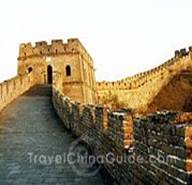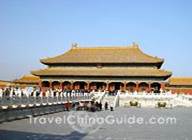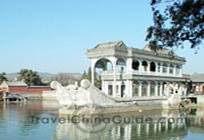题目内容
Standard English is that variety of English which is usually used in print,and which is normally taught in schools and to non-native speakers learning the language.It is also the variety which is normally spoken by educated people and used in news broadcasts and other similar situations.The difference between standard and non-standard,it should be noted,has nothing in principle(原理)to do with differences between formal and informal language:Standard English has informal as well as formal variants.
Historically the standard variety of English is based on the London Dialect of English that developed after the Norman Conquest resulted in the removal of the Court from Winchester to London.This dialect became the one preferred by the educated,and it was developed and promoted as a model,or norm,for wider and wider parts of society.It was also the norm that was carried overseas.But not one unaffected by such export.Today,standard English is codified(编写)to the degree that the grammar and vocabulary of English are much the same everywhere in the world where English is used:difference among the local standards is really quite minor,so that the Singapore,South Africa,and Irish varieties are really very little different from one another so far as grammar and vocabulary are concerned.Indeed,standard English is so powerful that it puts a tremendous pressure on all local varieties,to the degree that many of the long-established dialects of England have lost much of their vigor(活力)and there is much pressure on them to converge(靠拢)towards the standard.This latter situation is not unique to English:it is also in other countries where processes of standardization are under way.But it sometimes creates problems for speakers who try to strike some kind of compromise between local norms and national,even super-national ones.
68.The main topic of the text is
A.the difference between standard English and non-standard English.
B.the influence between standard English and non-standard English.
C.the origin and development of standard English used nowadays.
D.the difference between standard English and the London dialects.
69.Which of the following statements is TRUE according the text?
A.Standard English can be both formal and informal.
B.Standard English doesn’t differ from non-standard English in principle.
C.Informal English is the same as non-standard English.
D.Standard English is better than Non-standard English.
70.Standard English is used in the following situations EXCEPT .
A.in schools B.by educated and native speakers only
C.in news broadcasts D.in print
71.The stronger influence of standard English is causing .
A.different local standards to arise B.difference among dialects to grow
C.many dialects to lose uniqueness D.many new varieties to disappear
72.In terms of grammar and vocabulary,standard English .
A.differs greatly from dialects in the U.K
B.differs little from any variety of English in the world
C.differs greatly from dialects outside the U.K
D.differs a little from any variety of English

Phys ed (physical education) is making a comeback as a part of the school core curriculum(核心课程),but with a difference. While group sports are still part of the curriculum, the new way is to teach skills that are useful beyond gym class. Instead of learning how to climb a rope, children are taught to lift weights, balance their diets and build physical endurance(忍耐力). In this way,kids are given the tools and skills and experiences so they can lead a physically active life for the rest of their life.
Considering that 15 percent of American children aged 6 to 18 are overweight, supporters say more money and thought must be put into phys ed curriculum. In many cases, that may mean not just replacing the old gym-class model with fitness programs but also starting up phys ed programs because school boards often "put P.E. on the chopping block (砧板), cutting it entirely or decreasing its teachers or the days it is offered," says Alicia Moag-Stahlberg, the executive director of Action for Health Kids. The difference in phys ed programs is partly due to the lack of a national standard. "Physical education needs to be part of the core curriculum," she added.
The wisdom of the new approach has some scientific support. Researchers at the University of Wisconsin have showed how effective the fit-for-life model of gym class can be. They observed how 50 overweight children lost more weight when they cycled and skied cross-country (越野)than when they played sports. The researchers also found that teaching sports like football resulted in less overall movement, partly because some reluctant(不情愿的)students were able to sit on the bench.
Another problem with simply teaching group sports in gym class is that only a small percentage of students continue playing them after graduating from high school. The new method teaches skills that translate to adulthood.
【小题1】According to the passage, what is usually taught in the old gym class?
| A.Lift weights | B.Climb a rope | C.Cycle | D.Have a balanced diet |
| A.Schools do not pay enough attention to P. E.. |
| B.Schools welcome P. E. but do not have time for it. |
| C.Schools put P.E. in the first place. |
| D.Schools cut down other subjects’ time for P. E.. |
| A.More teenagers are overweight. |
| B.Traditional group sports teaching is not effective. |
| C.Students need to learn some skills to help them lead a physically active life. |
| D.Phys ed programs need less money to support. |
| A.Two | B.Three | C.Four | D.One |
| A.The Phys ed teaches group sports. |
| B.The Phys ed provides more fitness programs. |
| C.The Phys ed teaches tools and skills which could be used in the future life. |
| D.The Phys ed has more support from the government. |
What should you think about in trying to find your career(职业)? You are probably better at some school subjects than others. 1 A boy who is good at mathematics can use that in an engineering career. 2 So it is important to do well at school. On the other hand, you may not have any specially strong or weak subjects but your records show a general satisfactory standard. 3 Knowledge of history is not required for most jobs but if history is one of your good subjects you will have learned to remember facts and details. This is an ability that can be useful in many jobs.
4 If nothing else, you may have learned how to get to work on time, to follow instructions and to get on with older workers. Just as important, you may become interested in a particular industry or career you see from the inside in a part-time job.
Facing your weak points is also part of knowing yourself. 5 Your school record, for instance, may not be too good, yet it is an important part of your background. You should not be apologetic about it but instead recognize that you will have a chance of a fresh start at work.
| A.He may do well in his future work. |
| B.It is better to face any weaknesses than to pretend they do not exist. |
| C.Although not all subjects can be used directly in a job, they may have indirect value. |
| D.These may show strengths(优势) that you can use in your work. |
F. A girl who spells well and likes English may be good at office work.
G. If you have had a part-time job on Saturday or in the summer, think what you gained from it.
(E)
|
A.Importance of Transport in Trade |
|
B.Birth of Transport-related Industries and Trade |
|
C.Role of Transport in Trade Development |
|
D.Another Means to Develop Trade |
E.Higher Living Standard
F.Modern Life Needs Modern Traffics
80.
Transport is one of the aids to trade.By moving goods from places where they are plentiful to places where they are scarce, transport adds to their value.The more easily goods can be brought over the distance that separates producer and consumer, the better for trade.When there were no railways, no good roads, no canals, and only small sailing ships, trade was on a small scale.
81.
The great advances made in transport during the last two hundred years were accompanied by a big increase in trade.Bigger and faster ships enabled a trade in meat to develop between Britain and New Zealand, for instance.Quicker transport makes possible mass-production and big business, drawing supplies from, and selling goods to, all parts of the globe.Big factories could not exist without transport to carry the large number of workers they need to and from their homes.Big city stores could not have developed unless customers could travel easily from the suburbs and goods delivered to their homes.Big cities could not survive unless food could be brought from a distance.
82.
Transport also prevents waste.Much of the fish landed at the ports would be wasted if it could not be taken quickly to inland towns.Transport has given us a much greater variety of foods and goods since we no longer have to live on what is produced locally.Foods which at one time could be obtained only during a part of the year can now be obtained all through the year.Transport has raised the standard of living.
83.
By moving fuel, raw materials, and even power, for example, through electric cables, transport has led to the establishment of industries and trade in areas where they would have been impossible before.Districts and countries can concentrate on making things which they can do better and more cheaply than others and can then exchange them with one another.The cheaper and quicker transport becomes, the longer the distance over which goods can profitably be carried.Countries with poor transport have a lower standard of living.
84.
Commerce requires not only the moving of goods and people but also the carrying of messages and information.Means of communication, like telephones, cables and radio, send information about prices, supplies, and changing conditions in different parts of the world.In this way, advanced communication system also help to develop trade.





